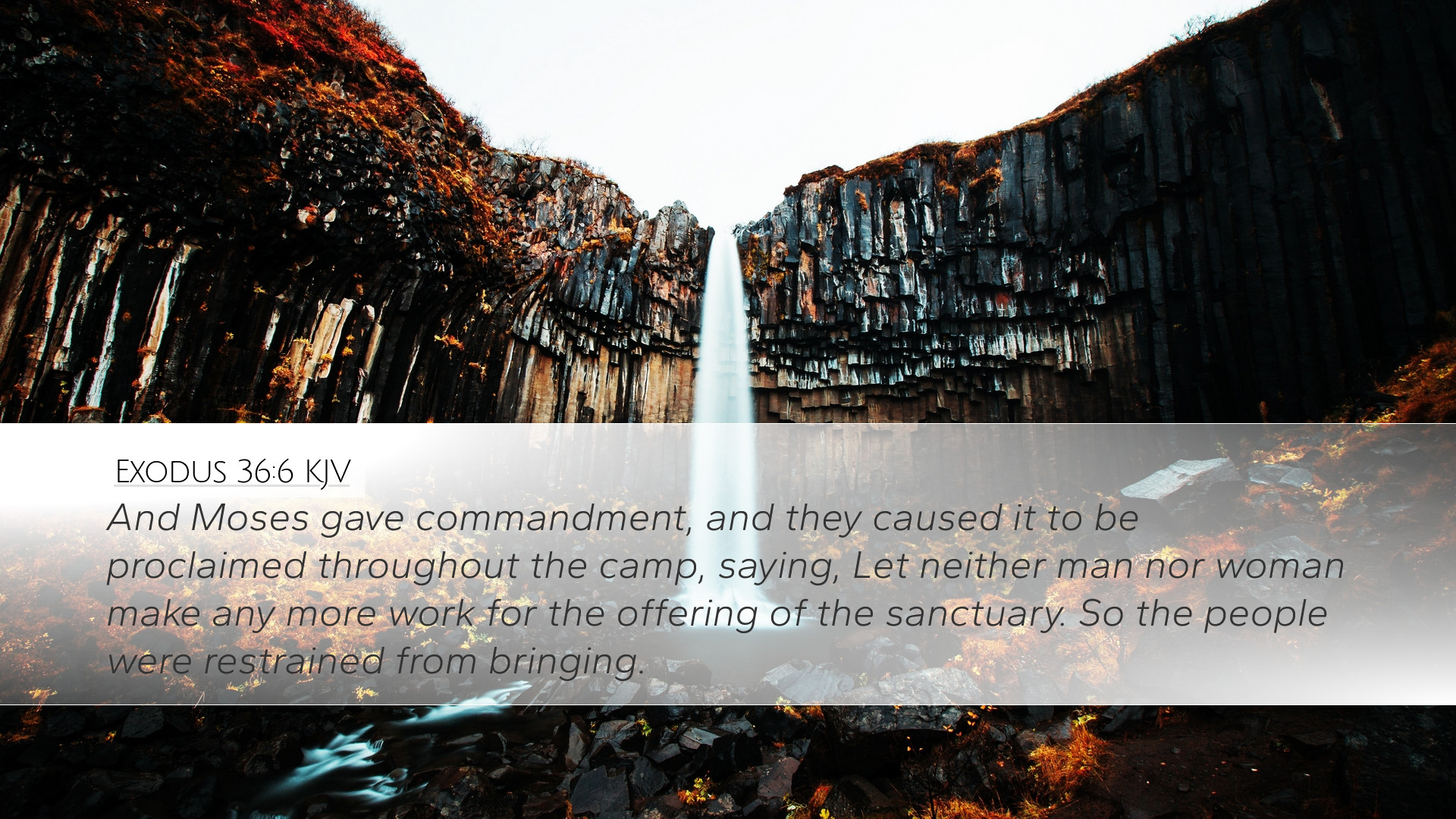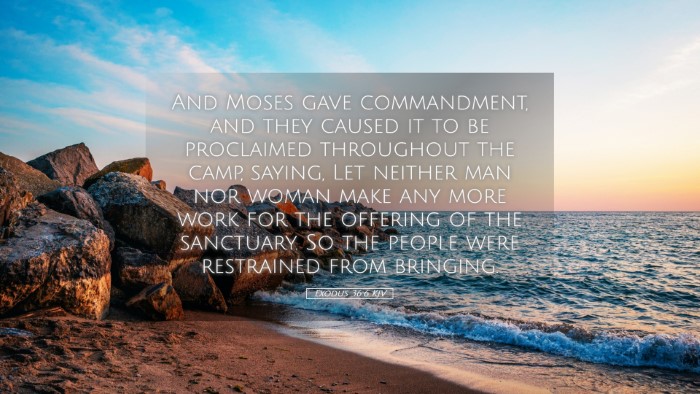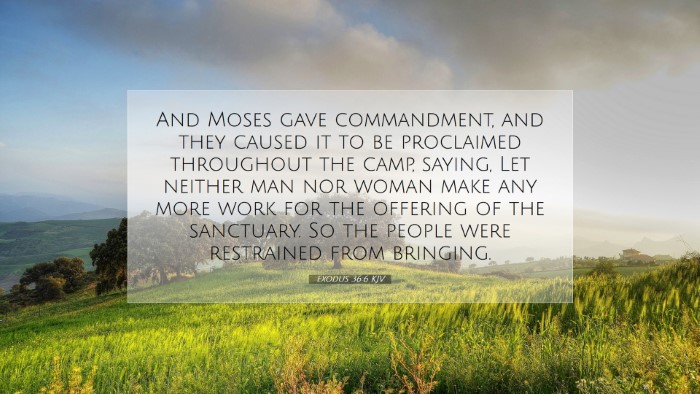Exodus 36:6 - Commentary and Insights
Verse: "So Moses gave command, and they caused it to be proclaimed throughout the camp, saying, 'Let neither man nor woman do any more work for the offering of the sanctuary.' And the people were restrained from bringing." (Exodus 36:6)
Introduction
This verse captures a significant moment in the construction of the Tabernacle, reflecting the themes of obedience, generosity, and divine provision. The directives given by Moses highlight the importance of collective action in the worship of God and the commitment of the Israelites to fulfill God's command through their offerings.
Commentary Overview
In reviewing this verse through the lens of various public domain commentaries, we find several layers of meaning designed to guide pastors, students, theologians, and Bible scholars.
Moses' Command
Albert Barnes emphasizes that Moses, as the leader appointed by God, has the authority to call for a cessation of work. His command reflects a well-managed process in fulfilling a divine task. Moses recognizes when enough resources and efforts have been gathered for the construction of the Tabernacle. This is a vital principle in ministry: understanding the balance between work and rest in the service of God.
Proclamation Throughout the Camp
Matthew Henry points out the method Moses used to communicate this command. By proclaiming to the entire camp, he emphasizes the communal aspect of the offerings. The congregation as a whole was involved in the construction, creating a sense of unity and shared purpose. The public proclamation also serves an accountability function; the people are encouraged to participate actively while knowing the point at which their contribution becomes excessive.
Restraint from Bringing
Adam Clarke delves into the notion that the people's willingness to stop bringing offerings was an indicator of their excitement and generosity. They were so moved by the spiritual significance and the purpose of their contributions that they had given more than enough. This speaks to the overflowing joy that comes with participation in God's work. Clarke also highlights the phrase “restrained from bringing,” suggesting divine influence over their hearts, thereby aligning their actions with God's will.
Theological Themes
- Divine Provision: The remarkable willingness of the Israelites to contribute and then cease reflects God’s abundant provision. God not only calls for the offering but also enables His people to respond generously.
- Order and Structure in Worship: Moses' leadership showcases the importance of order in worship practices. The orderly approach to gathering materials for the Tabernacle reflects the necessity of structure in ministry.
- Community Engagement: The entire community involved in the Tabernacle's construction symbolizes the collective responsibility in worship and service to God, highlighting that every individual’s role is significant.
Practical Applications
This passage contains valuable lessons for modern believers:
- Generosity in Giving: Just as the Israelites responded abundantly, believers today are encouraged to think deeply about their contributions to the work of the church. Generosity should spring from joy and willingness rather than obligation.
- Listening to Leadership: Moses’ role and authority serve as a reminder of the importance of recognizing and respecting spiritual leadership within the church. Leaders must be sensitive to when to call their congregations to rest or to action.
- Creating a Culture of Collaboration: The spirit of collaboration evident in this passage invites church communities to work together towards a shared purpose, reinforcing the belief that community efforts can achieve great things for God’s kingdom.
Conclusion
Exodus 36:6 presents a poignant moment of transition in the history of the Israelites, illustrating the power of obedience and the blessing of generous hearts. As they limited their contributions, it served as both an acknowledgment of God's sufficiency and a fulfillment of His divine plan for worship. Today, this verse calls upon pastors, students, and theologians to consider how they engage with their communities and contribute to the mission of the church.
By embracing the lessons of this passage, believers can cultivate a spirit of generosity, obedience, and unity that will greatly advance the work of the Lord in their respective ministries.


